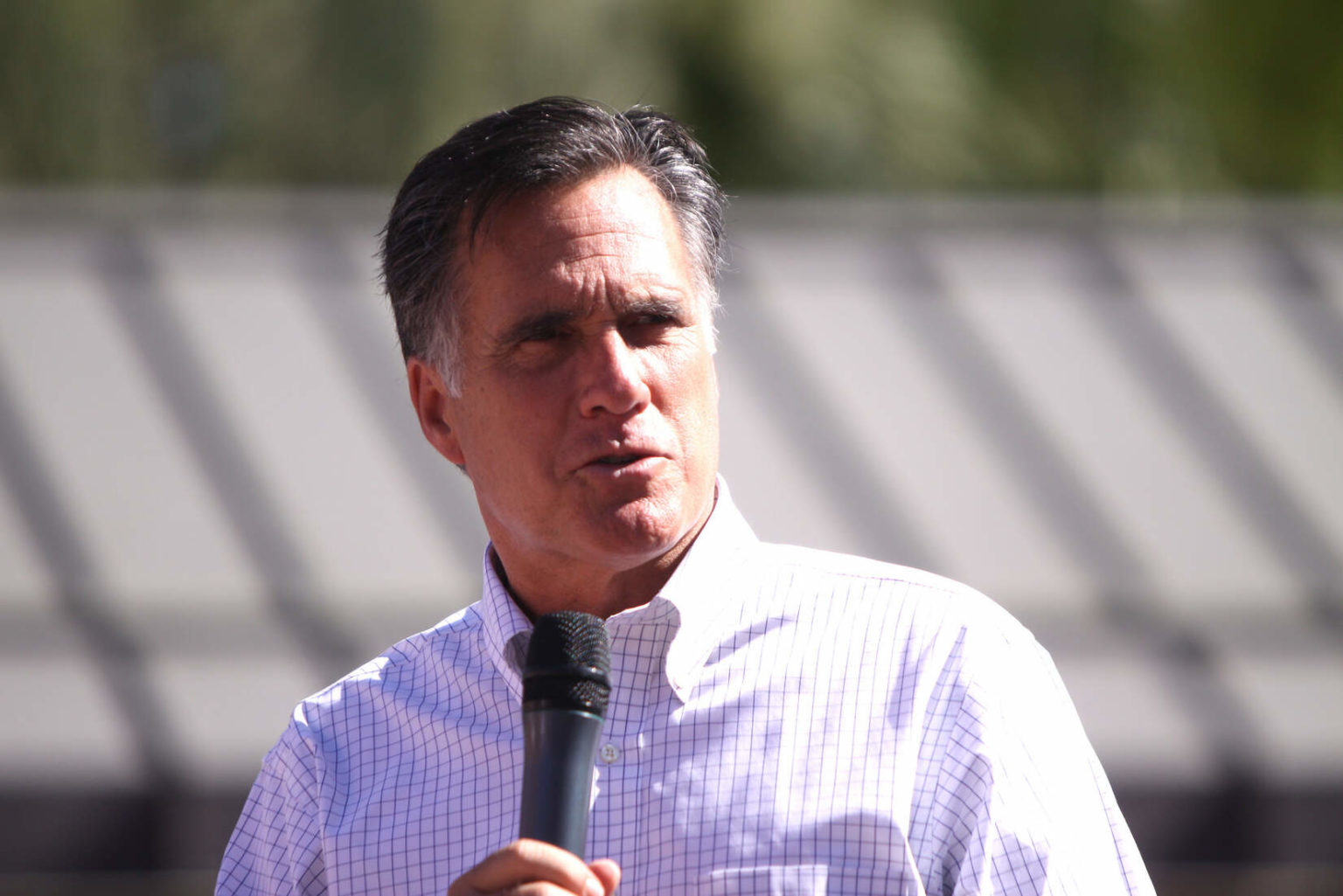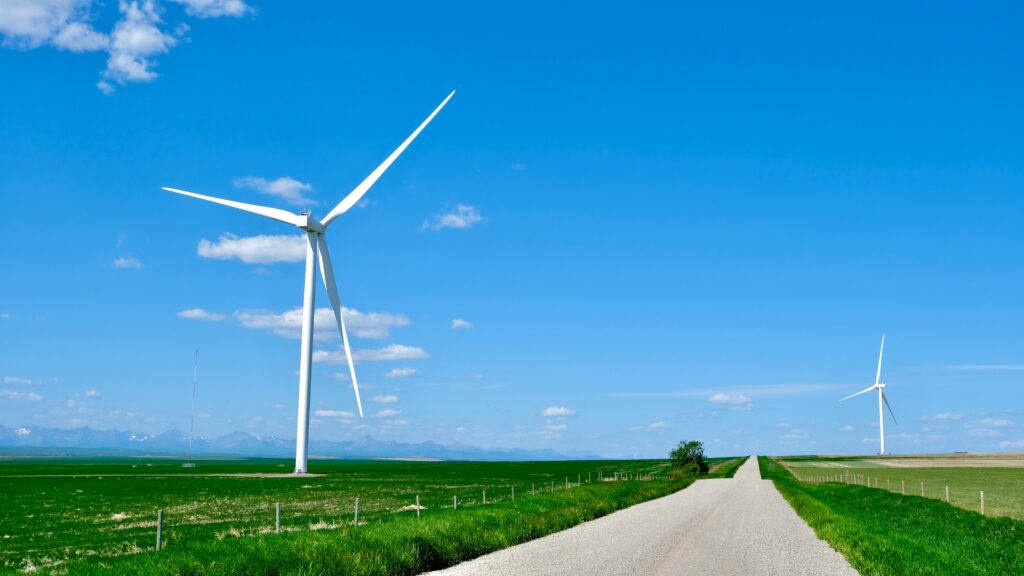The election results are a stark reminder of just how divided the country remains on many issues. However, in the days since the results were announced November 7, two senators from both parties are finding common ground in a familiar space: opposition to the Green New Deal and support for a dying coal industry.
Both Sen. Mitt Romney (R-UT) and Sen. Joe Manchin (D-WV) immediately took to CNN and Fox News in the days after the election was called to try and rally support for the fossil fuel industry in the wake of Joe Biden’s election as president — a success which brings with it the promise of strong climate action.
But their comments also come on the heels of yet another coal plant closure in the U.S. and as the world’s largest coal producer, Peabody Energy, warns of going bankrupt for the second time in five years.
Romney told CNN on November 8 that “I want to make sure that we conservatives keep on fighting to make sure we don’t have a Green New Deal, we don’t get rid of gas and coal.”
Meanwhile, Manchin went on Fox News on November 9 to also criticize the Green New Deal, saying, “That’s not who we are as a Democratic Party.”
“We’re going to use fossil in its cleanest fashion,” he added. Manchin’s unwavering support for the coal industry is well documented and unsurprising as he ran a coal company prior to being elected to the Senate.
Manchin in his comments also echoed Romney’s call to not get rid of gas and coal, telling Fox News, “You have to have energy independence in this country. You can’t eliminate certain things.”
Sen. Mitt Romney (R-UT) says who he voted for is “in the rearview mirror.”
Now “I want to make sure that we conservatives keep on fighting to make sure we don’t have a Green New Deal, we don’t get rid of gas and coal and oil, that we don’t have a Medicare For All plan …” pic.twitter.com/6DmUivyzs3
— The Recount (@therecount) November 8, 2020
The Green New Deal does not mention coal specifically but it does call for the elimination of carbon emissions in the U.S. power sector by 2030, which would effectively require the elimination of coal. International climate scientists agree that global coal use must effectively be phased out by mid-century to avoid the worst effects of climate breakdown. The move by Manchin and Romney to immediately attack the Green New Deal after the election, however, is disingenuous. President-elect Biden has been clear throughout his campaign that “The Green New Deal is not my plan.”
That said, Biden’s own climate plan is widely considered the most ambitious offered by any elected president. It also stands in dramatic contrast to the lack of any climate plan from the Trump adminstration.
Biden’s plan includes decarbonizing the power sector by 2035 — which effectively means ending all coal power generation in the U.S. within that same time period. This is because technologies like carbon capture and storage (CCS) — which allow coal to still be burned while trapping the greenhouse gases released before they can harm the atmosphere — are incredibly costly and have yet to be proven at a commercial scale. Biden, however, hasn’t ruled out CCS as part of the climate solution despite the many hurdles it must overcome to align with his 2035 deadline.
But while it may be misleading to equate Biden’s plan with the Green New Deal, Romney and Manchin are correct when they warn the results of the election are not likely to be good for the future of coal — a fact which remains true with any realistic plan to address climate change.
Free Markets Are Eliminating Coal
Romney and Manchin are taking the same approach President Donald Trump did when he was elected four years ago. Trump campaigned on the promise of bringing back the coal industry. But instead the coal industry has continued to fail based on simple economics — and that trend is accelerating.
In 2009, when Obama took office, coal produced 44 percent of the electricity in the U.S. Now, with more coal plants having closed in Trump’s four years than in Obama’s second term, coal is expected to produce just 17 percent of the electricity in America in 2020.
Just this week, another coal plant closure in Texas was announced while, at the same time, Peabody Energy, the world’s largest coal producer, warned it is potentially headed towards bankruptcy — again.
“Peabody Energy, the world’s largest private sector coal producer, said there was a risk it could go bankrupt for the second time in five years, as it raced to renegotiate debts in the wake of tumbling demand for the fossil fuel.” https://t.co/nWDCz2Rjvw
— Alexander Kaufman (@AlexCKaufman) November 9, 2020
As the world’s largest coal producer, Peabody produces both thermal and metallurgical coal. Thermal coal is used in power plants to produce electricity. Metallurgical coal (aka coking coal) is used by industries where high heat is required — such as the production of steel.
The pandemic has reduced demand for metallurgical coal but expectations are that some or all of that demand will return post-pandemic. Meanwhile, even before the pandemic, thermal coal had a problem: it essentially has no value because there are not enough customers to buy it. As the Institute for Energy Economics and Financial Analysis (IEEFA) reported last year, Peabody admitted in August of 2019 that thermal coal mines had no value. IEEFA noted that consumption of thermal coal in the U.S. is likely to be down 41 percent in just the last two years. The fact that thermal coal is essentially worthless is something the whole industry is facing — with no good financial options to fix the situation.
BHP is struggling to find a buyer for its thermal coal mines, while claiming they are “essential to the world”. They will soon be worthless. https://t.co/h0lXHlHv2g
— Terry Hughes (@ProfTerryHughes) November 8, 2020
In Peabody’s late September filing with the Securities and Exchange Commission (SEC), the coal company noted that the economic realities of its situtation “raise substantial doubt about whether the Company will meet its obligations” and thus its ability to stay afloat. Warning of not being able to “continue as a going concern” — an accounting term for having enough resources to keep operating — is usually followed by bankruptcy.
“Trump has done everything possible to remove protections on the environment,” in order to try and save coal, said Patrick Dillon, national executive vice president of the Utility Workers Union of America, told ClimateWire. But instead, “we have seen more plants closed than in the prior four years,” he continued. “It is not based on policy. It is based on money.” The coal industry is simply no longer economically competitive with other forms of power generation.
While Manchin may hope that the energy industry won’t “eliminate certain things,” the free markets are sending a clear signal that thermal coal for power production will be eliminated — the only question is how soon that will happen.
Coal Industry Cleanup Bonds at Risk
A June investigation by DeSmog highlighted how the coal industry is struggling from companies going bankrupt and then leaving no money to clean up the environmental mess left behind by the industry’s mining activities — much like the North American oil and gas industry.
The coal industry is supposed to have surety bonds (insurance) that will cover the costs to close and remediate coal mining operations even in the event of a company bankruptcy. However, as noted in the June investigation by DeSmog, “the bonding system now faces dangerous levels of risk.”
Peabody’s possible bankruptcy is directly linked to the bonding issue. The company has approximately $1.6 billion in surety bonds. In its September SEC statement, Peabody announced that the companies holding the bonds are asking for Peabody to contribute $800 million of collateral to secure those bonds. One insurer has asked Peabody for 100 percent of the bond values due to Peabody’s “deteriorating” financial condition, according to the St. Louis Post-Dispatch.
The purpose of surety bonds for companies like Peabody is to pay someone else to take on the risk of long-term cleanup costs. What is happening now is the industry is asking for Peabody to essentially pay for those cleanup costs itself— which is a major factor in why Peabody is saying it may not have enough money left to keep operating.
Peabody also stated in its September SEC filing that its cleanup estimates might be underestimated, stating, “if the assumptions underlying our asset retirement obligations for reclamation and mine closures are materially inaccurate, our costs could be significantly greater than anticipated.”
The underestimation of cleanup liabilities for fossil fuel companies is well documented. Billion Dollar Orphans, a recent report from Carbon Tracker, estimates that the U.S. oil and gas industry needs approximately a quarter trillion dollars for well cleanup that isn’t covered by bonding.
On a November 9 investor relations call, Peabody announced it had reached agreements with all of the companies that have issued it surety bonds. Those agreements, however, are dependent on Peabody also reaching agreements with its creditors — something that has not been done, and, according to Mark Spurbeck, Executive Vice President and Chief Financial Officer, needs to happen by December 31.
If Peabody is able to reach agreements with its creditors by the end of the year, the risks of unfunded cleanup liabilities remain as the coal industry’s expected rapid decline continues.
Voters Support Green New Deal and Renewables
Politicians are likely to continue supporting the fossil fuel industry and attacking the Green New Deal and renewable energy until the fossil fuel industries cease to exist. But the same is not true for the majority of Americans.
After @AOC noted every Medicare for All co-sponsor won reelection, I took a dive into the Green New Deal. Of the 93 co-sponsors who ran for reelection, all but two won (and three of four co-sponsors in swing districts won). Pretty good imho! https://t.co/Hm2mNpmYdg
— Brian Kahn (@blkahn) November 9, 2020
Supporting the Green New Deal was a winner for Democrats in this election. But it isn’t just Democrats who support these ideas. A pre-election poll in North Carolina — a state that President Trump narrowly won — found 66 percent of Republicans “would be more likely to support a pro clean-energy candidate.”
In June, Republican Senators wrote a letter to Republican Majority Leader Mitch McConnell asking for support for renewable energy in the COVID-19 relief bill. Polls continue to show that a majority of Republican voters support the idea of clean energy.
Renewable energy is beating coal based on simple economics. At the same time, transitioning to clean energy has broad support among American voters of all political affiliations. Predictably, politicians like Trump, Romney, and Manchin still support the coal industry because it benefits their political careers — and in Manchin’s case — his family’s business. Romney has taken more money from the fossil fuel industry than any other senator, and President Trump was the top recipient for donations from the coal industry in 2020. Meanwhile, Manchin has collected millions from his family’s coal company while serving as a senator.
The fossil fuel industry is failing despite having a champion in the White House the past four years. But the markets are getting rid of the coal industry for the simple reason that coal makes no economic sense for power generation — and no politician from either party can change that.
As coal giant Peabody warns of a return to bankruptcy—here’s how Biden’s infrastructure programs could save miners https://t.co/cBrxMAHHSi pic.twitter.com/uGKpUXCUh7
— Forbes (@Forbes) November 10, 2020
Main image: Mitt Romney speaking to supporters at a rally in Tempe, Arizona, in 2012. Credit: Gage Skidmore, CC BY–SA 2.0
Subscribe to our newsletter
Stay up to date with DeSmog news and alerts







